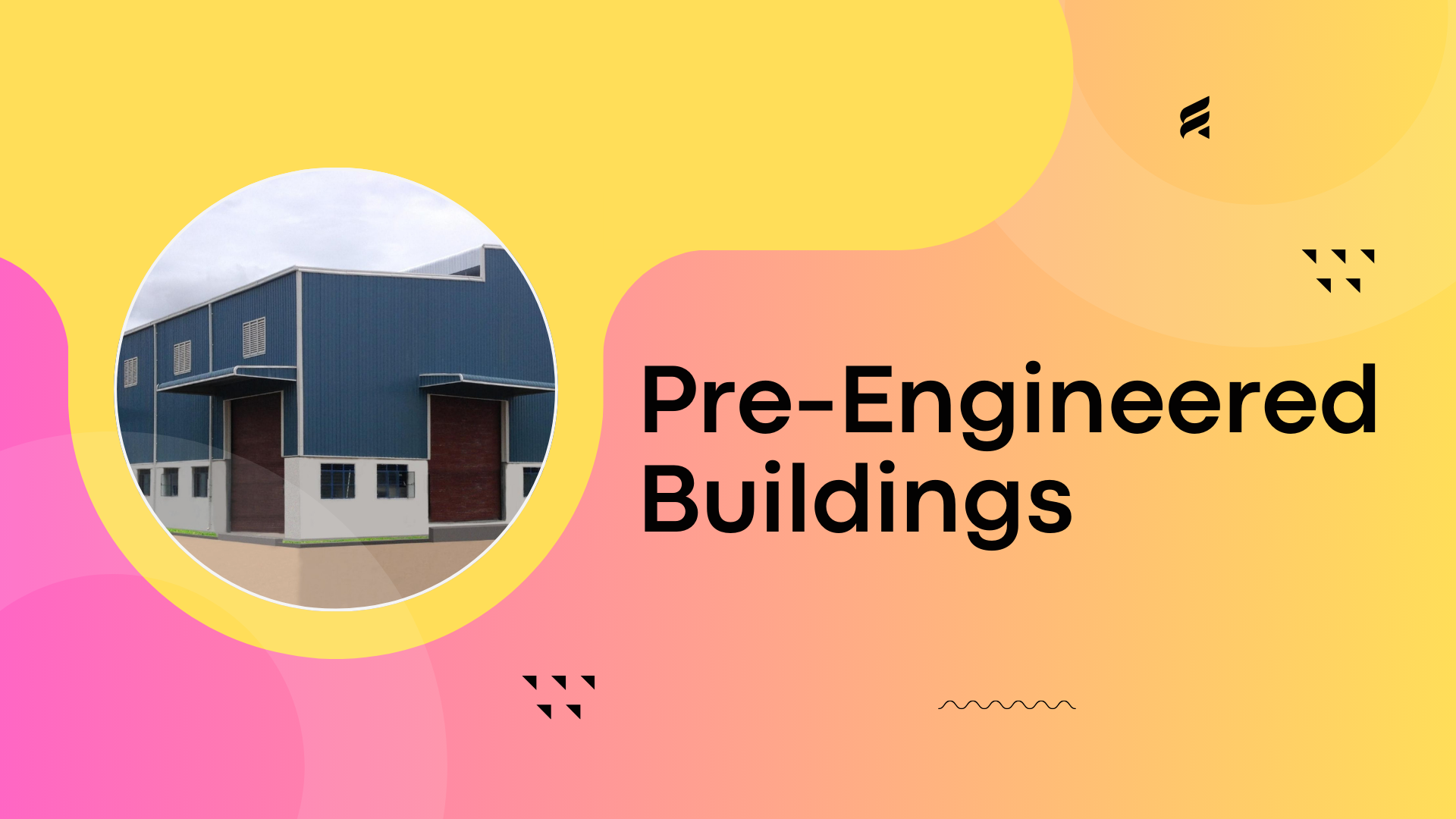Pre-Engineered Buildings: The Future of Modern Construction

In the fast-paced construction industry, cost-effectiveness, speed, and efficiency are now necessary rather than discretionary. Pre-Engineered Buildings (PEBs) have transformed the industry in this regard. These cutting-edge constructions are created and manufactured in a facility before being delivered to the location for prompt assembly. Pre-engineered buildings are now the preferred option for warehouses, factories, commercial complexes, and even residential projects due to their unmatched strength, sustainability, and versatility.
What Are Pre-Engineered Buildings?
A steel frame building that is constructed and painted in a controlled industrial setting is known as a pre-engineered building. Before being delivered to the building site to be assembled, all structural elements—beams, columns, purlins, and panels—are pre-designed and produced.
Because every component is made to exact specifications thanks to the pre-engineered design approach, waste is reduced and building time is greatly shortened. PEBs offer a "plug-and-play" method of constructing, in contrast to traditional structures that mostly rely on on-site manufacturing.
Key Components of Pre-Engineered Buildings
Three primary components make up a PEB:
1. The main framing
These are the building's primary load-bearing components; they are usually I-shaped steel sections made to be as strong as possible while weighing as little as possible.
2. Secondary Framing
This contains components that improve structural stability and support the walls and roof, such as girts, eave struts, and purlins.
3. Cladding
The walls and roof are composed of aluminum or steel sheets. For improved thermal performance, these can be insulated.
Advantages of Pre-Engineered Buildings
PEBs are becoming more and more popular, and for good reason—they provide a number of advantages that traditional approaches can not match.
1. Construction Speed
Site work is restricted to assembly because the components are prefabricated at the plant. PEBs are perfect for pressing industrial and commercial needs because they can save project deadlines by up to 50%.
2. Economical
Cost reductions are closely correlated with speedier construction, less waste, and less labor. The best use of materials is also made possible by the pre-engineered design.
3. Flexibility in Design
PEBs can be built in almost any size or shape, from tiny storage units to enormous industrial complexes. Cranes, canopies, mezzanines, and other structures are supported by the system.
4. Sturdiness and Power
PEBs, which are made of high-strength steel and have anti-corrosion coatings applied to them, are resistant to harsh weather conditions and require little upkeep.
5. Eco-Friendly
PEBs are frequently composed of recyclable materials and generate less building waste. Energy-efficient insulating choices can also lower ongoing operating expenses.
Applications of Pre-Engineered Buildings
The versatility of pre engineered structures means they are suitable for a wide variety of applications:
a. Industrial Buildings: Warehouses, factories, and workshops.
b. Commercial Spaces: Showrooms, offices, and retail outlets.
c. Agricultural Structures: Storage facilities, grain silos, and animal shelters.
d. Recreational Facilities: Sports complexes, gymnasiums, and auditoriums.
e. Residential Use: Modern homes and community centers.
The Pre-Engineered Building Process
Understanding the process helps clarify why PEBs are so efficient.
1. Concept and Design
The client’s requirements are analyzed, and a customized design is created using specialized software.
2. Fabrication
Steel components are manufactured in a controlled environment to ensure accuracy and quality.
3. Transportation
Fabricated materials are shipped to the site, carefully packaged to prevent damage.
4. Assembly and Installation
Skilled crews assemble the structure quickly using bolted connections, reducing the need for heavy on-site machinery.
Why Businesses Choose Pre-Engineered Buildings
Time is money in a lot of sectors. A pre-engineered warehouse gives businesses a competitive edge because it may be operational in weeks rather than months. PEBs also provide scalability because they are far easier to extend and modify than traditional buildings.
Both small enterprises and multinational corporations find it to be an appealing investment due to their predictable project durations and reduced labor expenses.
Challenges and Considerations
While PEBs offer numerous benefits, there are some factors to consider:
a. Design Limitations: Extremely complex architectural designs may require hybrid solutions.
b. Transportation: Large components may require special logistics planning.
c. Initial Investment: While overall costs are lower, the upfront cost can be slightly higher compared to basic masonry structures.
However, these challenges are minor compared to the long-term advantages PEBs deliver.
Conclusion
Our perspective on construction is changing as a result of pre-engineered buildings. Through the integration of speed, efficiency, durability, and sustainability, they provide a contemporary response to the expanding global infrastructure requirements. Pre-engineered structures are clearly the best option for the future, whether they are used for commercial, residential, or industrial purposes.
A pre-engineered building could be the difference between merely finishing a structure and creating a high-performing, reasonably priced asset that will last for decades if you are planning your next project.
- AI
- Vitamins
- Health
- Admin/office jobs
- News
- Art
- Causes
- Crafts
- Dance
- Drinks
- Film
- Fitness
- Food
- Giochi
- Gardening
- Health
- Home
- Literature
- Music
- Networking
- Altre informazioni
- Party
- Religion
- Shopping
- Sports
- Theater
- Wellness


